Vegan or plant-based eating is on the rise in Australia; Roy Morgan1 reports a 1.5% increase between 2012 and 2016 in Australians choosing all types of vegetarian eating. This equates to 11.2% of Australia’s population choosing to eat vegetarian for ethical or health reasons. And if you have looked around on social media or at the supermarket lately you will see lots of recipes and new products declaring they are “vegan friendly”.
Plant-based eating is like vegetarian eating but more restrictive. No meat, poultry, seafood, fish, eggs, dairy products and, for very strict vegans, no honey.
So what does a plant-based diet include?
- Grains
- Fruit
- Vegetables
- Peas, beans and legumes
- Soy products
- Nut- and plant-based milks
- Nuts and seeds
- And fats and oils from plant sources.
What’s so good about plant-based eating?
With care, it is possible to get all your nourishment and not harm animals – which is why most people choose to go plant-based or vegan.
Being plant-based the eating pattern is high in fibre which is great for the health of our gut, and high in many vitamins, minerals and phyto-nutrients. It’s also easy to eat enough protein, good carbs and healthy fats.
It’s also easy to eat lots of processed foods, less healthy fats, added sugars and too much salt! Between 2014 and 2016 food industry increased the number of vegan food products on the Australian market by 92%. These processed and pre-prepared foods are handy but not always healthy so when you shop be choosy about what you are buying.
Having a plant-based diet doesn’t mean you have to suffer too much restriction – there are plant-based alternatives for most ingredients. Restaurants are getting on board the plant-based diet band wagon and reviewing their menus to provide choices for everyone, too.
So what do I eat to be plant-based?
That’s easy! Eat anything which has been grown and exclude anything which doesn’t come from a plant.
Protein foods – choose nuts, seeds, peas, beans and lentils. Soy milk, tofu and tempeh are good sources of protein, too.
Healthy fats – are found again in nuts and seeds, and their oils, including peanut, canola and macadamia nut oils as well as olive oil. Go easy on coconut oil, cream and milk – they taste delicious but aren’t heart healthy.
Good carbs – include peas, beans and lentils, root vegetables and fruit. Go easy on fruit juice and dried fruit treats if you are watching your weight. Grains, especially wholegrains or wholemeal varieties like grain bread, brown rice (I choose low GI brown rice), wholemeal pasta, oats, and barley. And pseudo-cereal grains like chia, quinoa and amaranth.
And the rest – all the leafy and low carb vegies are just marvellous for phyto-nutrients, vitamins, minerals and fibre.
What are the nutrients I need to be careful to eat enough of?
It’s easy to cut out animal foods but you need to check what you are eating to get enough:
- Iron
- Vitamin B12
- Calcium
Iron
The iron in plants, called non-haem iron, isn’t as well absorbed by our bodies compared to the iron from animal sources. By eating plant sources of iron with vitamin C or acidic foods – citrus, tomatoes, etc – will help absorb the iron. Choose dark leafy greens like spinach, legumes, tofu, nuts and seeds, wholegrains – especially amaranth and quinoa – and dried fruits.
Iron is needed to make red blood cells which carry oxygen to our tissues. The Recommended Daily Intake (RDI) for iron is 8mg/day for post-menopausal women and men and a whopping 18mg/day for pre-menopausal women. Low iron levels make you feel unusually tired and can be associated with depression. If you are feeling these symptoms, are having heavy periods or are pregnant, lactating or an athlete ask your doctor to check your iron levels. When iron levels are confirmed as being too low then take a supplement and work on getting more iron from your food. A dietitian can help your plan your iron intake with a plant-based diet.
Vitamin B12
Vitamin B12 only comes from animal sources, so you will need to take a supplement. Some processed vegan foods like burgers, patties and sausages may be fortified with vitamin B12 – check labels. An average adult woman or man has an RDI of 2.4ug/day, more for women who are pregnant or lactating.
Calcium
Many people tell me they don’t have to worry about calcium as their blood level of calcium was fine in their last blood test. Our bodies use our bones like a bank account to store calcium. Calcium is used by the body to keep muscles moving and biochemical processes going, so the body withdraws calcium from the calcium bank. Without enough deposits of calcium coming in from food your bones thin and you develop osteoporosis. No, thank you! Play it safe and get enough calcium from your food or talk to your GP about a supplement.
Choose foods fortified with calcium including tofu set with calcium carbonate (check the ingredients on the label) and plant-based milks with added calcium (look for 100-120mg per 100mL). You can naturally absorb some calcium from almonds, unhulled tahini (sesame seed paste), green leafy vegetables like kale and Asian greens, and ground chia seed. Adult pre-menopausal women or men have an RDI of 1000mg/day, while post-menopausal women’s RDI is 1200mg/day. RDIs for pregnant and lactating women vary based on age.
Rise in vegan eating
The rise in vegan eating in Western countries mirrors the rise in Instagram use by the Millennials (also called Gen Ys). Google trends show the trajectory of searches for “veganism” match the usage of Instagram, since it 2012. Instagram was the first picture based social media platform which is perfect for promoting wonderful looking plant-based meals.
Okay, so I’m going plant-based. What do I eat?
Its easy to swap out dairy milk for a plant based milk so for breakfast you can still have cereal and milk or fruit toast with vegan margarine or fruit with soy yoghurt.
Snacks can be fruit, either fresh or dried, crackers with dips like hummus or nut butters, nuts and seeds.
For lunch bulk cook some plant based meals – like vego lasagne using plant-based milk and cheese, or take a wrap stuffed with salad and roast pumpkin with chopped nuts and avocado.
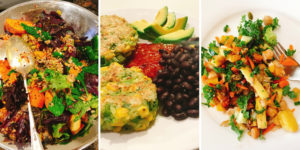 Dinner is pretty straight forward. Swap mince for brown lentils mixed dishes. Replace chicken or beef in stir fries with marinated tofu and/or legumes – make sure you add plenty of vegies, and use garlic, ginger and lemon grass for flavours and toss in extra nuts and seeds. Make patties with mashed potato or sweet potato, with added legumes or tempeh or pre-cook soups like lentil or vegetable soups.
Dinner is pretty straight forward. Swap mince for brown lentils mixed dishes. Replace chicken or beef in stir fries with marinated tofu and/or legumes – make sure you add plenty of vegies, and use garlic, ginger and lemon grass for flavours and toss in extra nuts and seeds. Make patties with mashed potato or sweet potato, with added legumes or tempeh or pre-cook soups like lentil or vegetable soups.
And dessert? Easy – fruit, fruit ices, chia puddings, or custard made from plant-based milk and cornflour flavoured by vanilla or cocoa (or cacao) and sweetened with a little sugar.
What goes with plant-based eating? It depends on your motives.
Are you following a plant-based diet for sustainability? Then you might also cut out or reduce single use plastics like straws, disposable coffee cups, water bottles and bags, choose an energy efficient method of transport and generate your own energy (by solar or wind power).
Are you following a plant-based diet for animal welfare? Then choosing non-leather handbags, shoes and clothing, and using cosmetics and skin care products which aren’t tested on animals is the way to go.
So to recap:
Plant-based eating is booming in Australia right now. If you decide to follow a plant-based diet, cut out all meats, poultry, fish, dairy and honey. Rethink your usual recipes – add in soy or nut milk, legumes, nuts, seeds, and lots of vegies. Have a chat with your dietitian about how you can make sure you are getting enough iron, vitamin B12 and calcium.
Not ready to go completely plant-based yet?
Try one or more of these:
- Have Meat Free Monday – a vego meal every Monday night!
- Half how much meat, chicken or fish you have in meals and add in legumes instead – it will save you money on your weekly shop.
- Choose vegetarian meals when you eat out – they always seem more interesting, anyway!
Bon appétit!
1 https://www.roymorgan.com/findings/vegetarianisms-slow-but-steady-rise-in-australia-201608151105
get dale’s support now register for weekly tips

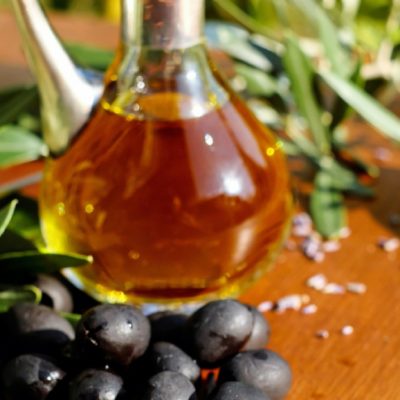
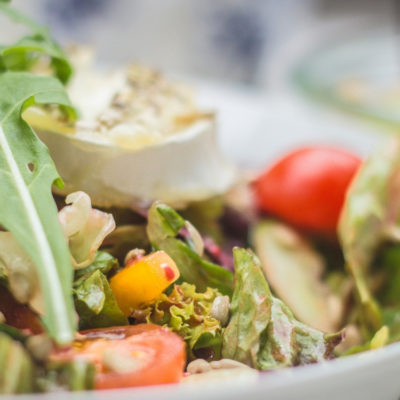

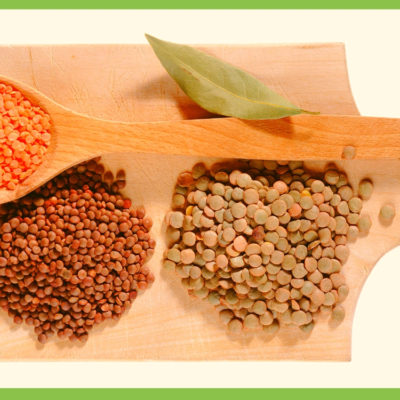
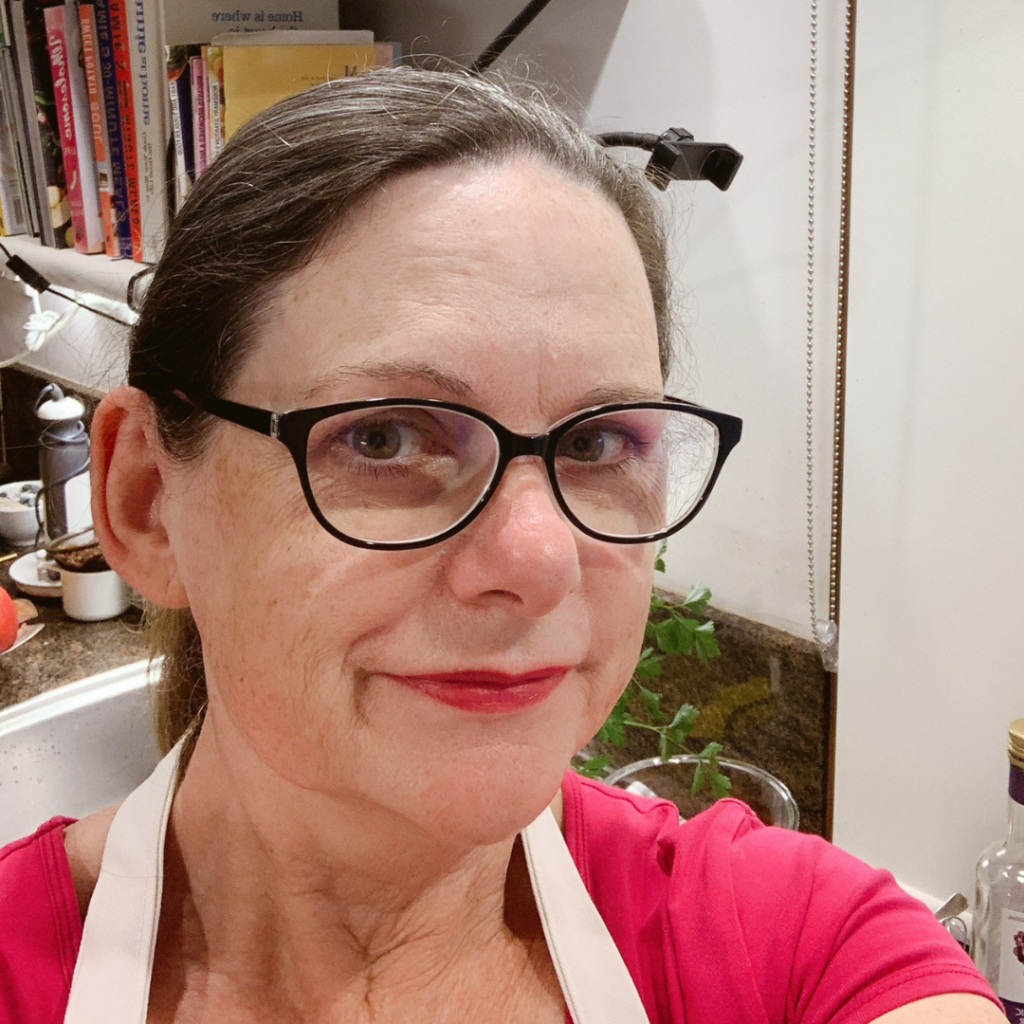
Comments (0)